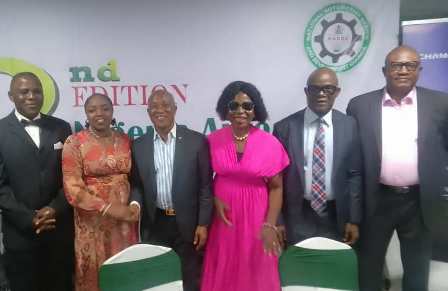A strong and unified call for strategic investment in local content development dominated discussions at the second edition of the Nigeria Auto Industry Summit (NAISU), held in Lagos under the theme: “Nigeria First: Local Content as Catalyst for Automotive Economy.”
The summit, jointly organised by the Nigeria Auto Journalists Association (NAJA) and the National Automotive Design and Development Council (NADDC) on Thursday July 31st, attracted top stakeholders across government, regulatory agencies, manufacturing, finance, and development sectors. The event aimed to forge a sustainable roadmap for Nigeria’s automotive industry through homegrown capacity and innovation.
Setting the tone with a compelling address, NAJA Chairman, Mr. Theodore Opara, declared that Nigeria’s path to industrialisation must be led by a robust automotive sector driven by local content.
“If Nigeria must industrialize, the auto sector must lead. If the auto sector must thrive, local content must be the engine,” he asserted.
Opara criticised the nation’s continued dependence on imported vehicles and components—including tyres, batteries, and brake pads—despite Nigeria’s vast natural resources and labour potential. He identified policy inconsistency, weak coordination, and poor stakeholder commitment as key obstacles holding back local manufacturing.
He urged stakeholders to embrace the mantra: “Buy Nigeria. Drive Nigeria. Trust Nigeria.”
According to him, only a collective commitment by regulators, OEMs, financiers, and consumers can change the narrative.
Opara also reaffirmed NAJA’s contribution through its three flagship programmes: NAISU, the NAJA Training Workshop, and the Annual NAJA Awards.
Mr. Joseph Osanipin, Director General of NADDC, reinforced the urgency of localisation, describing local content as a strategic imperative.
“It’s the engine that will drive economic transformation,” Osanipin stated.
He cited ongoing NADDC initiatives such as production incentives, skills development, and research and development support, aimed at laying a solid foundation for a resilient local automotive ecosystem.
Osanipin acknowledged challenges in areas like finance, electricity, and raw material processing but urged stakeholders to rally behind the “Nigeria First” campaign for long-term industrial progress.
Representing the Corps Marshal, Assistant Corps Marshal Ann Oladayo of the Federal Road Safety Corps (FRSC) stressed the intrinsic link between automotive design, road safety, and local manufacturing standards.
“As we localise production, we must not compromise on safety and environmental standards,” she cautioned.
She pledged the FRSC’s continued collaboration with industry players in shaping transport policies that uphold innovation, ethics, and public safety.
As the summit closed, optimism was tempered with realism. Stakeholders emphasized the need for measurable milestones, accountability, and policy continuity.
NAJA Chairman Opara proposed that the summit resolutions be documented and forwarded to the Presidency, National Assembly, and key MDAs for immediate policy attention.





